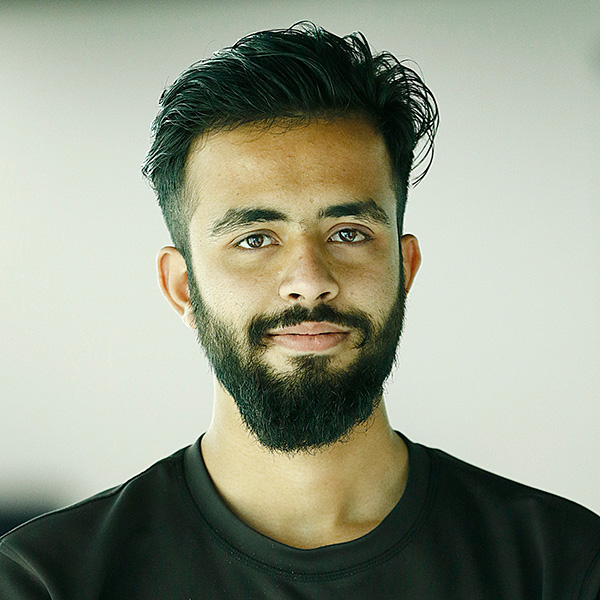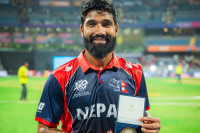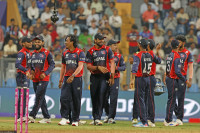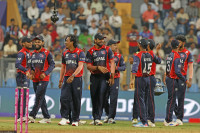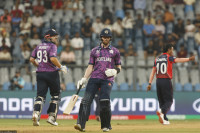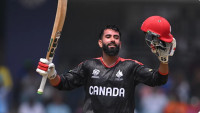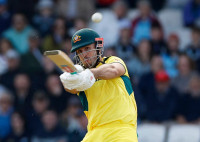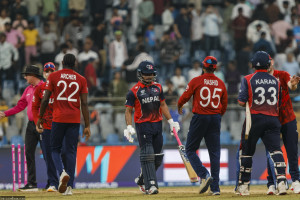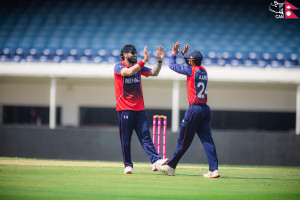Sports
Patrick De Wilde has faith in Nepali women footballers as he takes charge
Nepal team’s first pro-licence holder coach says big results need serious work and investment. The Belgian ‘won’t waste my time if I’m held back’.
Nayak Paudel
Patrick De Wilde has come to Nepal not with a grand promise—but with instinct, belief in players, and a clear warning: without real support, he won’t stay on to watch things fall.
The Belgian coach describes himself as a realist to the question whether he can help Nepal’s women finally end their painful run of 13 lost finals.
“I’m not in a position to say whether I can win trophies with this team or not,” Wilde said on Friday in his first press conference as the head coach of the Nepali women’s football team.
“I haven’t even met the players in person. My first session with them is tomorrow,” he said. “Maybe after a week, I can speak more clearly about what they can do, and what I can.”
“The feeling was good,” he said when asked why he applied for the Nepal job, despite knowing about the state of sports in the country. He previously worked as the head coach of Kathmandu Rayzrs FC.
Wilde is happy to be leading a senior national side—his first. “The feeling was good,” he said when asked why he applied to take charge of Nepal. He was with Kathmandu Rayzrs FC for the third Nepal Super League in April.
Wilde began his coaching career in 1999 in Belgium and stayed in the domestic club competition until 2006. His first overseas role came in 2007 at Ukraine’s FC Metalurh Donetsk. After a season back home with KSK Beveren, he helped China’s Tianjin Songjiang earn promotion to the second division in 2010/11. He coached youth teams at FC Red Bull Salzburg and FC Lifering in Austria before reaching Tunisia’s top league in 2013/14.
His first national team role came in 2016 with Algeria’s senior and U23 sides, followed by stints with Hungary’s national team in 2018 and as Lithuania’s technical director in 2021. He also assisted China’s U23 team during the Asian Cup last year. He was then associated with Kathmandu Rayzrs FC.
“For a coach, leading a national federation is most important,” said Wilde. It is his first time as the head coach of a senior national team.
‘Football has changed’
After a round of questions for Wilde, the media turned their focus to ANFA officials—coach selection committee member Hari Khadka and spokesperson Suresh Shah. One of the major concerns raised was about the support staff who would be working alongside the new head coach.
“Rajendra Tamang will continue as assistant coach under Wilde,” Shah said. “Bhagawati Thapa will also serve as an assistant, and Suraj Kumar Lama will be the goalkeeping coach.”
Shah, however, declined to disclose the financial terms of Wilde’s one-year contract. “For now, ANFA and Wilde have agreed not to make public other aspects of the contract,” he said.
“Nonetheless, we are certain that Wilde will help Nepal get closer to the dreams of the Asian Cup, the Olympics and the World Cup,” Khadka said.
As Khadka and Shah answered questions in Nepali, Wilde admitted to feeling slightly out of the loop. “I kept hearing the word ‘assistant’ now and then while they were speaking,” Wilde said in a brief chat with the Post after the press meet.
Wilde later emphasised that assistant coaches are a crucial part of his plans. “Football has changed,” he said. “It’s no longer a one-man job. Assistant coaches are not there only to put the cones during training. Football is not what it was two decades ago.”
Wilde credits much of his growth as a coach to his former mentor, Georges Leekens, a respected figure in Belgian football who had brief appearances as a player for the national team before leading it as head coach on two separate occasions.
As coach, Leekens led Belgium to the 1998 FIFA World Cup and later returned in 2010 for a second stint. Leekens had Wilde as his assistant during his time with Algeria and Hungary.
“I learnt a lot from Leekens, one of the best in the job,” Wilde told the Post. “The most important thing I learned was player management.”
Wilde believes he would need a drastic change in Nepali football as well. “What those changes will be known once I train with the players,” he said.
‘No secrets’
And for Wilde, good player management involves trusting in the youth. “Not looking for new talents,” he said, “is already a failure.”
Wilde, who arrived in Kathmandu on Thursday, was already at the ANFA Complex by Friday morning. “I observed the U-20 girls training for the SAFF Championship and was impressed by parts of their gameplay,” he said. “I’ve called a couple of U-20 players to join the senior team’s camp.”
“Some players have it, the way to play football,” Wilde told the Post. “My squad will not have players who do not deserve the spot. I need my players to play for their country with determination.”
“On my first session tomorrow, I will be having a good discussion with the players,” he added. “I will open my training session for the media soon.”
As per Wilde, he does not like keeping secrets. “Football has no secrets and that is the most beautiful part of this sport.”
‘Not going to waste my time’
The All Nepal Football Association (ANFA), on April 21, had called for applications for the position of the head coach for the national women’s team. Wilde was one of the 21 applicants, all pro-licence holders.
“Through virtual interview, we narrowed the applicants down to 10, and then five, before shortlisting the last two,” said Hari Khadka of ANFA’s coach selection committee. “We also had to look at the financial aspects, but we did not compromise on quality.”
Wilde stressed that he was going to give his all for the Nepali national team to achieve positive results in the challenge ahead: the AFC Asian Cup Qualifiers.
“It would have been boring if there were no challenges ahead,” said Wilde. “It is not fun to keep training without anything to fight for.”
Wilde is expected to take Nepal to their maiden Asian Cup as group topper, leaving behind host Uzbekistan, Laos and Sri Lanka, in the qualifiers starting in three weeks.
“Uzbekistan is a good team. And yes, we can beat them,” Wilde said. “But first, we have to focus on defeating Laos and Sri Lanka.”
Nepal play Laos, Sri Lanka and Uzbekistan in the qualifiers on June 29, July 2 and July 5, respectively.
Still, Wilde made it clear he cannot do it alone, and he won’t stay if the environment isn’t supportive.
“You can’t aim for big results unless you work and invest in it,” he told the Post. “If things hold me back, I’m not going to waste my time here.”




 12.12°C Kathmandu
12.12°C Kathmandu